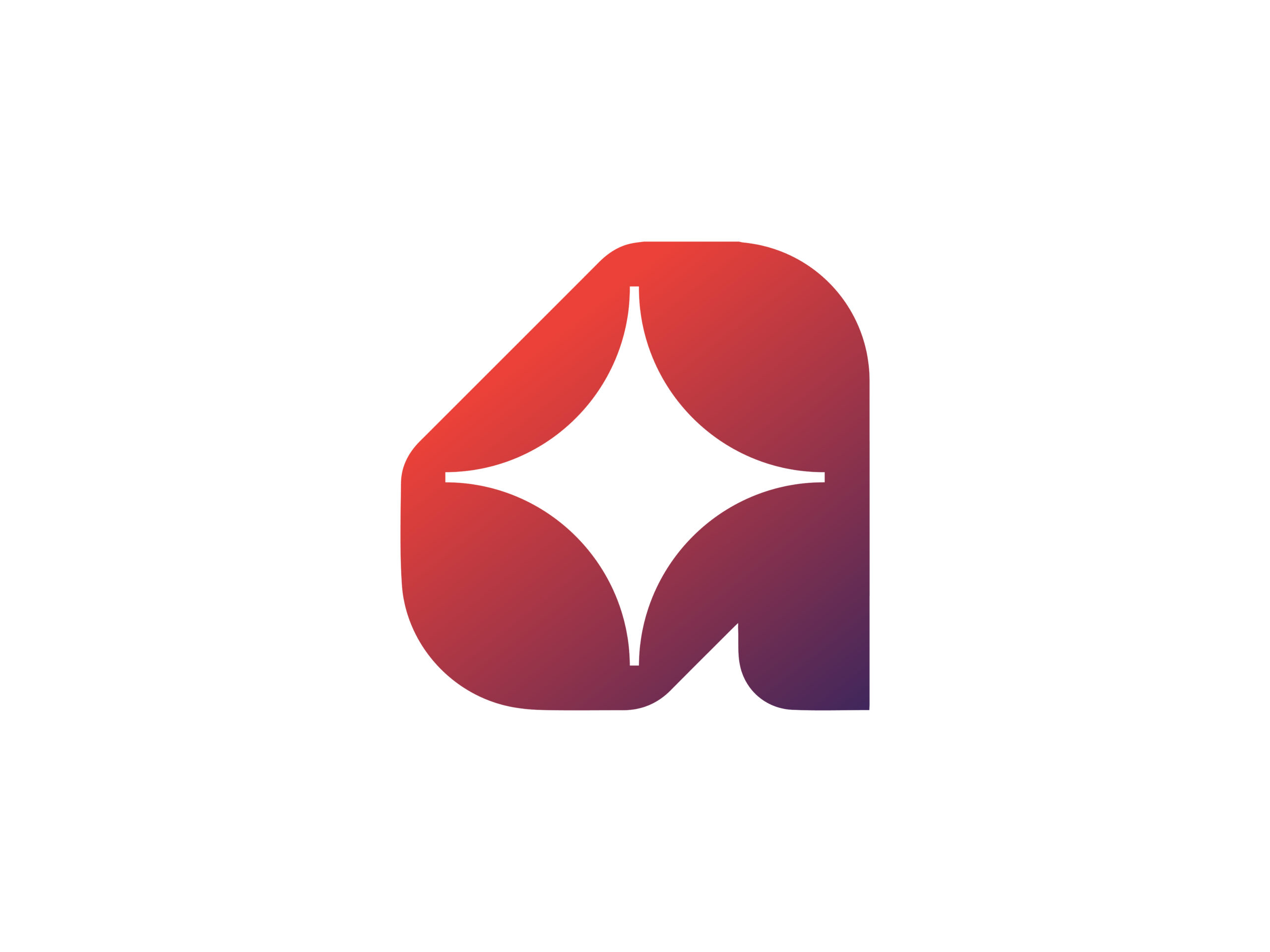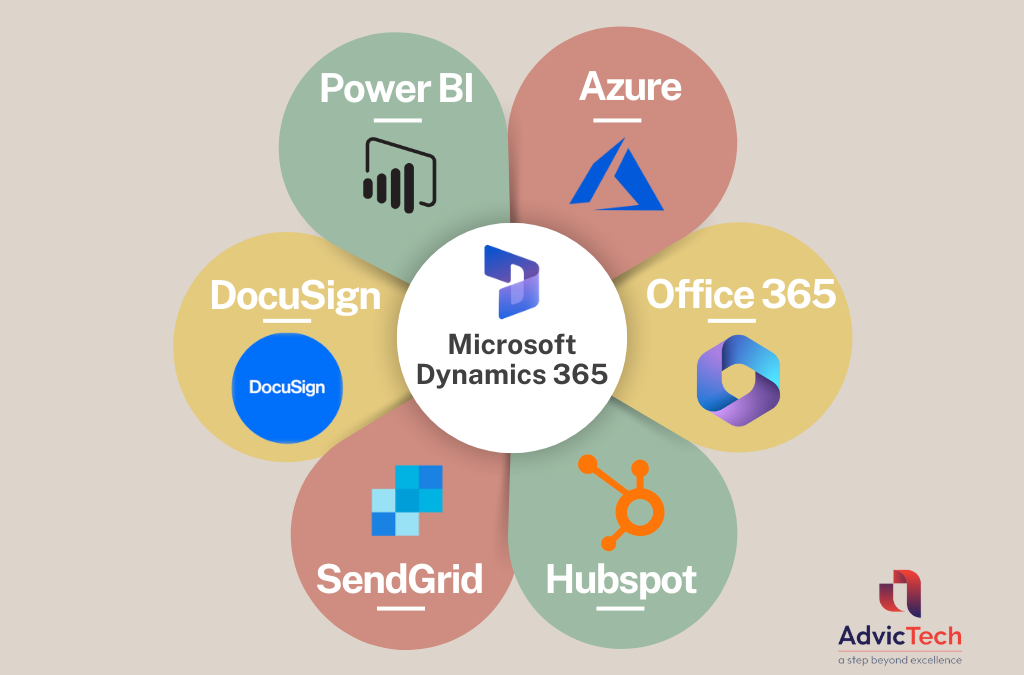What is Dynamics 365?
Microsoft Dynamics 365 is a comprehensive suite of business applications that helps organizations manage various aspects of their operations, including ERP (Enterprise Resource Planning) and CRM (Customer Relationship Management). It combines the functionalities of ERP and CRM into a single platform, allowing businesses to streamline processes, improve customer interactions, and make data-driven decisions. Dynamics 365 offers modules for sales, customer service, field service, finance, operations, marketing, and more, all integrated with Microsoft’s other productivity tools like Office 365 and Azure.
Dynamics 365 indeed integrates closely with other Microsoft products such as Office 365, Power BI, and Azure. This integration enables businesses to leverage their existing Microsoft infrastructure seamlessly and enhance their operational efficiency.
Here are some key points about Dynamics 365’s integration & customization capabilities:
Integration with Office 365
Dynamics 365 integrates with applications like Outlook, Excel, and SharePoint within Office 365. This integration allows users to access CRM data directly from familiar Office applications, synchronize calendars and emails, and collaborate more effectively. Users can access both Dynamics 365 and Office 365 applications with a single set of credentials, simplifying login and improving security. Dynamics 365 apps can embed Office 365 applications directly within their interfaces. For example, you can access and edit documents in SharePoint or OneDrive directly from within Dynamics 365. Emails sent from Outlook can be automatically tracked in Dynamics 365, linking communications to relevant CRM records (e.g., leads, contacts, opportunities). Integration with Microsoft Teams allows for seamless collaboration on CRM records. Teams chats, meetings, and files can be linked directly to Dynamics 365 records. Documents and files associated with CRM records can be stored and managed in SharePoint, facilitating document sharing and version control.
D365 Integration with Power BI
Dynamics 365 integrates with Power BI, Microsoft’s powerful business analytics tool. This integration enables businesses to create interactive dashboards and reports using CRM and ERP data, providing insights that drive informed decision-making. We can embed Power BI reports and dashboards directly within Dynamics 365, providing users with contextual insights without leaving the CRM environment. Power BI can connect to Dynamics 365 data in real-time or near real-time, ensuring that your reports and dashboards reflect the most current data available. Key advantages of integrating D365 with Power BI are unified data view, real-time Insights, rich visualizations, data consolidation, cross-platform insights. Power BI incorporates AI capabilities that can analyze data trends, detect anomalies, and provide predictive analytics based on Dynamics 365 data, enhancing decision-making processes. By providing actionable insights and fostering data-driven decision-making, this integration enhances operational efficiency, customer satisfaction, and overall business performance.

D365 & Azure Integration
Dynamics 365 leverages Azure, Microsoft’s cloud computing platform. This integration supports scalability, security, and advanced AI capabilities within Dynamics 365 applications. Organizations can use Azure services to extend Dynamics 365 functionalities and integrate with other third-party applications. Azure provides robust storage options (e.g., Azure SQL Database, Blob Storage) that can be used to store Dynamics 365 data backups, documents, and other files securely. Azure Virtual Machines can host Dynamics 365 server components, providing scalability and performance optimization based on workload demands. Azure Logic Apps and Azure Functions allow for seamless integration between Dynamics 365 and other applications or services, automating workflows and data exchanges. Dynamics 365 can integrate with Azure AD for single sign-on (SSO) and centralized identity management, simplifying user access and enhancing security. It uses Azure RBAC to manage permissions and access rights across Dynamics 365 and other Azure-integrated services. It has Azure IoT Hub that connects and manages IoT devices directly from Dynamics 365, leveraging Azure IoT Hub for data ingestion, monitoring, and analysis. Security and Compliance ensure that Azure services used for Dynamics 365 integration adhere to organizational security policies and compliance requirements. This integration fosters agility, innovation, and efficiency, driving business growth and customer satisfaction through enhanced CRM functionalities.
D365 Customization
Dynamics 365 offers extensive customization capabilities, allowing organizations to tailor the platform to their specific business processes and industry requirements. Before customization, explore D365’s standard functionalities to see if they meet your needs without additional development. Customization options include configuring forms, fields, workflows, business processes, and creating custom applications using Power Platform tools like Power Apps and Power Automate. For more complex customization needs, use the D365 Software Development Kit (SDK) and Extensions. This involves coding in languages such as C# to create plugins, custom workflows, and integrations with external systems. Embed custom web resources (HTML, CSS, JavaScript) within D365 forms to extend functionality or integrate with external web services. Customizing Microsoft Dynamics 365 allows organizations to optimize CRM capabilities to meet specific business requirements and improve operational efficiency.
D365 Industry-Specific Solutions
Dynamics 365 provides industry-specific solutions and templates, such as for retail, manufacturing, financial services, healthcare, and more. These solutions are built on top of the core Dynamics 365 platform and are designed to address the unique needs and challenges of different industries. Point of Sale supports the transactions, customer loyalty programs, and omnichannel sales. Retail Analytics provides insights into sales trends, customer behavior, and operational efficiency. Production Management handles production planning, scheduling, shop floor operations, and quality control. Asset Management tracks and maintains equipment and assets throughout their lifecycle. Wealth Management supports client management, portfolio management, and financial planning. Sales Automation manages leads, opportunities, and sales pipelines. Relationship Management tracks customer interactions and communications. Case Management tracks and resolves customer issues through various channels (phone, email, social media). Knowledge Management provides a centralized repository for articles and FAQs. Campaign Management plans, executes, and measures multi-channel marketing campaigns. Industry-specific solutions in Microsoft Dynamics 365 empower organizations to optimize operations, improve customer engagement, and drive growth within their respective sectors. By leveraging these tailored solutions, businesses can gain a competitive edge through enhanced efficiency, flexibility, and innovation across their CRM and ERP functions.
Conclusion
Dynamics 365’s integration capabilities with Microsoft’s ecosystem and its customization flexibility empower organizations to streamline operations, enhance customer engagement, and leverage data-driven insights for sustained business growth. Whether through seamless integration with Office 365, leveraging AI and IoT capabilities in Azure, or customizing workflows and applications with Power Platform tools, Dynamics 365 offers a comprehensive platform that supports organizational agility, efficiency, and innovation in today’s competitive landscape.


